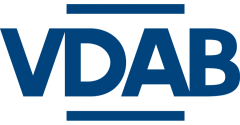

What will our labor market look like in 2030? Are companies ready to prepare employees for new roles and tasks? With the rapidly evolving digital transformation, upward mobility, refocusing and reskilling are becoming essential.
2030: activation,
upskilling and ecosystems
The labor market
Up- & reskilling

VDAB
The Flemish Service for Recruitment and Work Training is the Flemish public employment service and operates one of the largest job sites in Flanders. The VDAB helps people in their search for work by, among other things, offering training courses and guiding job searchers.

Lecot
is Belgium's largest hardware dealer founded over 125 years ago. Lecot's customers include manufacturers of doorsand windows, carpenters, electricians and plumbers.

Lecot went in search of a communication platform that would not only support video meetings but would also simplify working from home and enable remote training. "When the COVID-19 crisis broke out, we already had a plan of action," says Eddy Evens, CIO at Lecot. "For us, it was all about shifting gears and accelerating the rollout." The situation also removed previous barriers. "Suddenly, working from home was mandatory, which meant we had to take steps quickly."
Lecot is going digital for a shorter time-to-market
Read the interview with Eddy Evens
4 out of 10 Belgians score below the basic level of digital skills. What does that level imply and how important are these skills in today's labor market?
Digital leadership strengthens your competitive edge

“In the future, we will work in ecosystems of clients, united around a common goal.”
Jeroen Franssen,
Lead Expert of the People & Organization Expertise Center at Agoria
In practice, all the parties concerned – government, sectors, companies and the public – will have to make the necessary efforts to narrow the gap between the supply and demand of labor and must set their sights on the future.
Jeroen Franssen argues for abandoning the quasi exclusive focus on digitization. After all, in addition to digital transformation, there are other 'drivers for change', such as sustainability, that we all can respond to proactively and take action around.
In addition, the symbiosis between man and machine is becoming paramount for keeping productivity at a high level within companies. Higher productivity is no longer synonymous with working harder, but above all with working smarter, in all comfort and optimally assisted by new technologies.
This is only possible with the right skills on the shop floor. Proximus is already being part of ensuring that new hi-tech solutions – such as a new digital workplace, IoT, bots or data analytics – are implemented as efficiently as possible.
Last but not least, Jeroen Franssen refers to the '70/20/10 rule' to increase employability. This rule says that employees should divide their job into three sections, with 70 percent of the work time going to the main task, 20 percent to support in another project and 10 percent going to preparing for the role of the future, in line with the company strategy.
Towards 2030: working together!
With the economy once again reaching cruising speed, the labor market evolving rapidly and the battle for talent fierce, the challenges for companies are immense.
The creation and filling of vacancies merely by increasing the level of activity is not sufficient. Continuously arming people with the right competencies, that will be the challenge.
In addition, entry into the labor market should be facilitated by achieving upward job mobility for all workers. This means that people at a certain level on the career ladder upskill and move on, making way for new entrants. People in declining jobs need to be retrained. For people in changing jobs, we need to invest in skills to allow them to remain relevant.
Lifelong learning – with greater accessibility through various forms of training – should prepare employees for the future labor market.
Companies can play a key role in training employees 'on the job' so that they become employable in evolving roles and multiple projects. This task is also the shared responsibility of employer and employee.
Companies must also strive to no longer focus solely on degrees and fixed 'labels' when recruiting and employing, but rather on people's potential and character traits, diversity and complementarity.
The rigid idea of permanent jobs – working for the same employer for life – is more and more giving way to agile roles and projects in ecosystems of clients who unite around a common goal.
Challenges and opportunities for businesses
“Let's strive for upward mobility in our labor market, with passionate employees who take up multiple roles.”

Lead Expert of the People & Organization Expertise Center at Agoria, is a labor market expert and the face of Agoria’s study 'Be The Change'. He keeps a finger on the pulse of labor market trends and how it deals with new challenges. He is also chairman of the training council 'Digital' at the Provinciale Hogeschool Hasselt (PXL).
Jeroen Franssen
The increasing pressure on the labor market is partly due to the accelerated outflow of baby boomers. Their departure also puts extra pressure on the retention of internal knowledge and experience within organizations, and many employers are not ready for that.
The disappearance of this know-how and the rapidly evolving competency needs cannot be met by our education system alone. The result? The ball is more than ever in the camp of employers and young people as well as experienced workers to put lifelong learning into practice.
- Increase in labor demand by 0.56% and decrease in labor supply by 0.11% results in 541,000 vacancies by 2030
- Particular demand for highly-educated people
increasing pressure on the labor market
towards 2030
- The COVID-19 pandemic results in 110,000 lost jobs
- Recovery has started, full recovery expected from 2023 onwards
impact pandemic
2020 to 2021
- 220.000 extra jobs filled
- Employment rate increased at the same rate as the European average
nice increase
2016 to 2019
With the study 'Be The Change' – of which Jeroen Franssen, Lead Expert at Agoria, is the face – Agoria maps out the evolution of the labor market in Belgium until 2030. This study examines how big the demand for labor is today and how it will evolve by 2030.
The Belgian labor market in figures

Up- & reskilling
The labor market
2030: activation,
What will our labor market look like in 2030? Are companies ready to prepare employees for new roles and tasks? With the rapidly evolving digital transformation, upward mobility, refocusing and reskilling are becoming essential.
upskilling and ecosystems
With the study 'Be The Change' – of which Jeroen Franssen, Lead Expert at Agoria, is the face – Agoria maps out the evolution of the labor market in Belgium until 2030. This study examines how big the demand for labor is today and how it will evolve by 2030.
The Belgian labor market in figures
- 220.000 extra jobs filled
- Employment rate increased at the same rate as the European average
nice increase
2016 to 2019
- The COVID-19 pandemic results in 110,000 lost jobs
- Recovery has started, full recovery expected from 2023 onwards
impact pandemic
2020 to 2021
- Increase in labor demand by 0.56% and decrease in labor supply by 0.11% results in 541,000 vacancies by 2030
- Particular demand for highly-educated people
increasing pressure on the labor market
towards 2030
The increasing pressure on the labor market is partly due to the accelerated outflow of baby boomers. Their departure also puts extra pressure on the retention of internal knowledge and experience within organizations, and many employers are not ready for that.
The disappearance of this know-how and the rapidly evolving competency needs cannot be met by our education system alone. The result? The ball is more than ever in the camp of employers and young people as well as experienced workers to put lifelong learning into practice.

Lead Expert of the People & Organization Expertise Center at Agoria, is a labor market expert and the face of Agoria’s study 'Be The Change'. He keeps a finger on the pulse of labor market trends and how it deals with new challenges. He is also chairman of the training council 'Digital' at the Provinciale Hogeschool Hasselt (PXL).
Jeroen Franssen
With the economy once again reaching cruising speed, the labor market evolving rapidly and the battle for talent fierce, the challenges for companies are immense.
The creation and filling of vacancies merely by increasing the level of activity is not sufficient. Continuously arming people with the right competencies, that will be the challenge.
In addition, entry into the labor market should be facilitated by achieving upward job mobility for all workers. This means that people at a certain level on the career ladder upskill and move on, making way for new entrants. People in declining jobs need to be retrained. For people in changing jobs, we need to invest in skills to allow them to remain relevant.
Lifelong learning – with greater accessibility through various forms of training – should prepare employees for the future labor market.
Companies can play a key role in training employees 'on the job' so that they become employable in evolving roles and multiple projects. This task is also the shared responsibility of employer and employee.
Companies must also strive to no longer focus solely on degrees and fixed 'labels' when recruiting and employing, but rather on people's potential and character traits, diversity and complementarity.
The rigid idea of permanent jobs – working for the same employer for life – is more and more giving way to agile roles and projects in ecosystems of clients who unite around a common goal.
Challenges and opportunities for businesses
“Let's strive for upward mobility in our labor market, with passionate employees who take up multiple roles.”
In practice, all the parties concerned – government, sectors, companies and the public – will have to make the necessary efforts to narrow the gap between the supply and demand of labor and must set their sights on the future.
Jeroen Franssen argues for abandoning the quasi exclusive focus on digitization. After all, in addition to digital transformation, there are other 'drivers for change', such as sustainability, that we all can respond to proactively and take action around.
In addition, the symbiosis between man and machine is becoming paramount for keeping productivity at a high level within companies. Higher productivity is no longer synonymous with working harder, but above all with working smarter, in all comfort and optimally assisted by new technologies.
This is only possible with the right skills on the shop floor. Proximus is already being part of ensuring that new hi-tech solutions – such as a new digital workplace, IoT, bots or data analytics – are implemented as efficiently as possible.
Last but not least, Jeroen Franssen refers to the '70/20/10 rule' to increase employability. This rule says that employees should divide their job into three sections, with 70 percent of the work time going to the main task, 20 percent to support in another project and 10 percent going to preparing for the role of the future, in line with the company strategy.
Towards 2030: working together!

“In the future, we will work in ecosystems of clients, united around a common goal.”
Jeroen Franssen,
Lead Expert of the People & Organization Expertise Center at Agoria
4 out of 10 Belgians score below the basic level of digital skills. What does that level imply and how important are these skills in today's labor market?
Digital leadership strengthens your competitive edge
Lecot
is Belgium's largest hardware dealer founded over 125 years ago. Lecot's customers include manufacturers of doorsand windows, carpenters, electricians and plumbers.

VDAB
The Flemish Service for Recruitment and Work Training is the Flemish public employment service and operates one of the largest job sites in Flanders. The VDAB helps people in their search for work by, among other things, offering training courses and guiding job searchers.

Lecot went in search of a communication platform that would not only support video meetings but would also simplify working from home and enable remote training. "When the COVID-19 crisis broke out, we already had a plan of action," says Eddy Evens, CIO at Lecot. "For us, it was all about shifting gears and accelerating the rollout." The situation also removed previous barriers. "Suddenly, working from home was mandatory, which meant we had to take steps quickly."
Lecot gaat digitaal voor kortere
time-to-market
Read the interview
